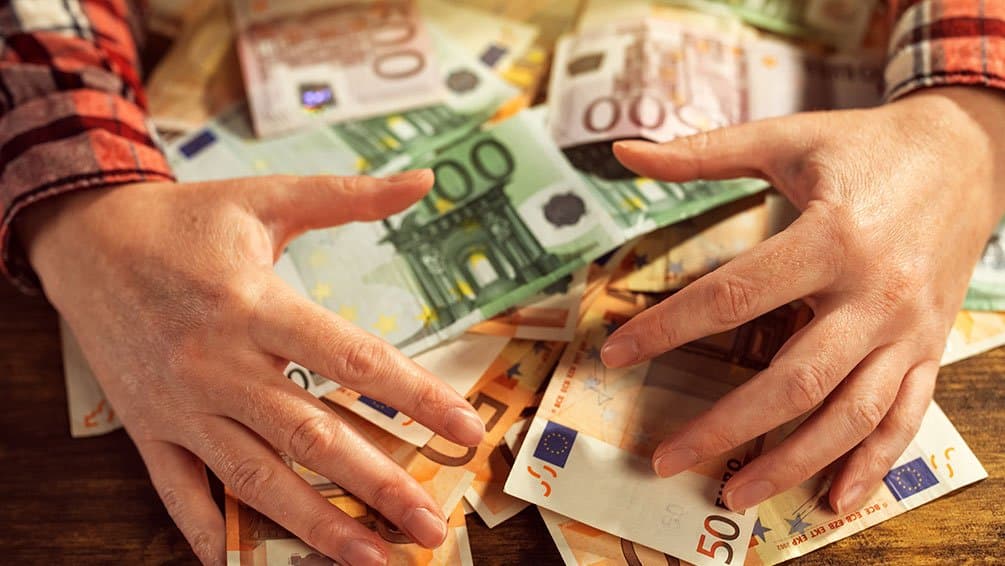
German researchers find cash irreplaceable
Is a cashless culture really as "convenient, safe and user-friendly" as Mastercard and Visa would have us believe? In April 2017, the Deutsche Bundesbank offered the public answers from the experts by commissioning an 'independent demand-based approach' study on the benefits of cash presented at the 2017 International Cash Conference.
The thought leaders behind the presentation, Franz Seitz (Weiden Technical University of Applied Sciences) and Malte Krueger (University of Applied Sciences Aschaffenburg), presented their scientific publication on behalf of the central bank of Germany with the aim of offering a critical overview of literature on the cost calculations and the importance of payment media across countries.
The presentation begins with a reminder on guarantees that cash offers which would be lost in a cashless future and concludes that electronic payment options have never been and are likely never to be the equal to cash. 'Cash has characteristics which make it hard to find a perfect electronic substitute:
- Anonymity in use;
- Use without other service providers;
- Neither payer nor payee have to be online;
- Usable for big and small amounts;
- Payments are easy, comfortable and quick;
- Payment is definitive and final;
- Cash is relatively secure against counterfeits.'
"In all likelihood, there will never be a perfect electronic substitute. Security aspects are particularly important. A digital means of payment that provides an combination of anonymity, offline usability, open access for anyone and no transaction limits would pose huge risks for issuers."
Context: The War on Cash - Visa's latest attempt to shove cash aside.
In an unprecedented act of despair, Visa announced plans to pay thousands of dollars to 50 small merchants. They would receive the money for restricting their customers’ choice when it came to payments by no longer allowing cash payments. In Visa’s own words, this is part of the company’s "strategy" for “putting cash out of business”.
One of the arguments from those pushing for a war on cash (namely Visa and Mastercard) is that cash is costlier and cards are more financially efficient - but is that true?
Even though the 'cost of cash' is an argument that usually paints cash negatively, Krueger and Seitz argue that actually, credit and debit card payments cost more. '...Even sectoral studies do not reveal higher costs of cash payments in general:
- Costs per transaction: Costs of cash unambiguously lower than those of debit and credit cards,
- Costs per turnover: debit card payments with lower, but credit cards with higher costs than cash,
- Multi-country study of the ECB: in some countries cash, in others cashless payments the least cost-intensive payment instrument.'
The 2017 presentation concludes that even though competition between cards and cash is economically healthy, 'a cashless future is nowhere in sight and the arguments for it are simply not convincing. They add that 'Welfare costs of abolishing cash essential' and not to be taken lightly - but ultimately, it the consumer who should decide!
"Use of cash effectively protects payment data, in particular the data of the payer."
Context: This isn't the first time the Deutsche Bundesbank has commissioned research on the subject.
In 2014, the central bank of Germany commissioned a paper as part of its statutory mandate for payments, offering a bottom-line understanding of the costs of using cash and non-cash options in relation to who bears the costs and if they are allocated on a 'user pays' basis.
The 2014 paper also looks for possibilities to reduce the costs and increase the benefits but at its core aims to "broaden our knowledge of the costs and benefits of payment instruments so as to be in a position to contribute to a factual debate in terms of determining the framework conditions to ensure a smooth settlement of payments."
Some findings from the 2014 paper include:
- 'While unsurprisingly, credit transfers clearly dominate in terms of value, cash is in first place in terms of transactions.' p. 18
- 'The continued importance of cash is also demonstrated by the evolution of cash holdings over time.' p. 28
- 'While cash is used relatively frequently in Germany, card use is below the European average. However, that does not mean that cashless payment instruments are generally used less frequently here.' p. 44
- 'Conversely, the low card usage and the relatively high use of cash can also be explained by the fact that access to cash is relatively easy. One indicator of this would be the density of the network of ATMs and bank branches' p. 49
The 2014 paper repeatedly advises against reapplying to other countries without making every possible adjustment for the many unique aspects of a different nation's payment system. Also, the paper notes the incalculable importance of 'quality-related' factors such as cash's impact on data protection, monetary policy and dependency when in a crisis.
Download Bundesbank's The Blessing of Cash 2017 publication here
Download Bundesbank's Cost and Benefits of Cash 2014 paper here
Source
Malte Krüger and Franz Seitz, 1st March 2014. 'Costs and Benefits of Cash and Cashless Payment Instruments: Overview and Initial Estimates'. Deutsche Bundesbank. PDF.
Malte Krüger and Franz Seitz, 27th April 2017. 'Blessings of Cash'. Deutsche Bundesbank. PDF.
